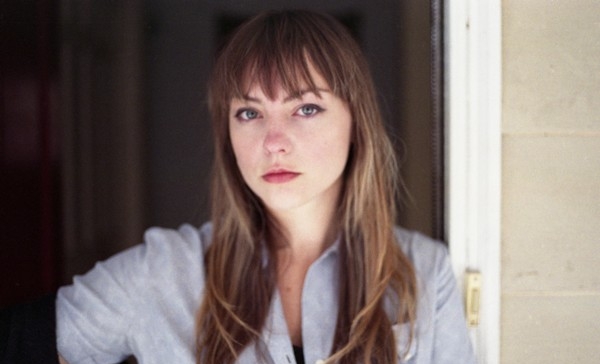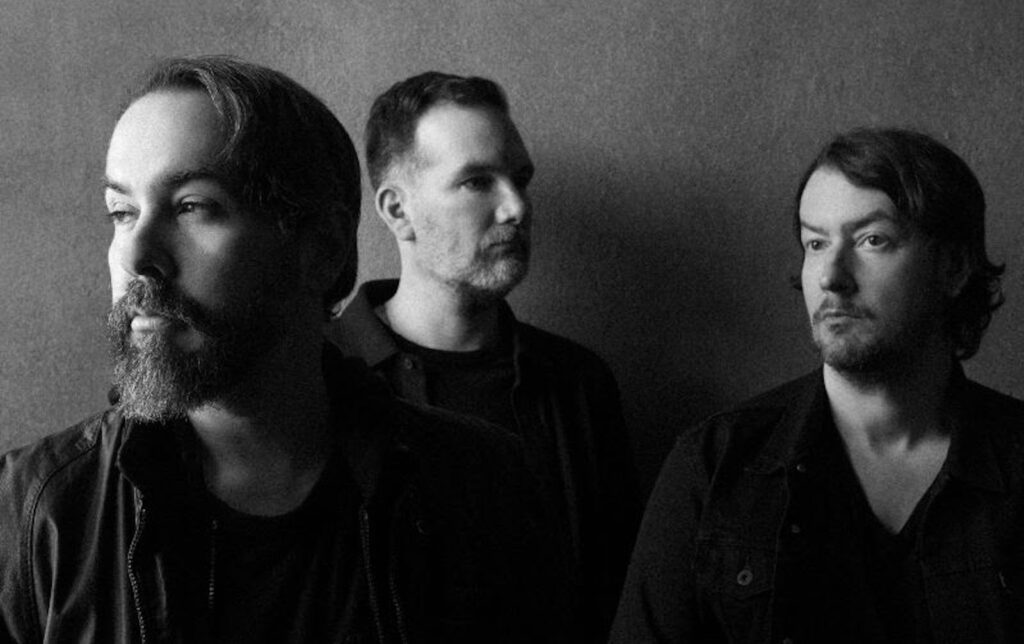Interestingly, the recording of Burn Your Fire For No Witness saw Olsen open up to outsiders like never before. It’s the first record she’s made with an established backing band in tow. On top of this, studio wizard John Congleton – who’s overseen records from Swans, St Vincent, Cloud Nothings and Xiu Xiu this year alone – handled production duties.
Olsen’s previous release, 2012’s Half Way Home, also features backing instrumentation, but it’s a largely peripheral feature. Burn, on the other hand, contains tracks such as Forgiven/Forgotten and Stars, where electric guitars are used to emphasise the singer’s piercing emotional insights. The input of her band members – guitarist Stewart Bronaugh and drummer Josh Jaeger from Chicago’s Lionlimb – is integral, but Olsen was still calling the shots.
“As far as writing and recording [goes], I write everything,” she says. “I’m definitely a control freak… but I’ll get stuck on some stuff and will be like, ‘I don’t know how we should learn to play this. Something isn’t happening here.’ I’m open to suggestions.”
Olsen’s songwriting voice is truly her own, which positions Burn as one of the year’s finest releases. Despite this singularity, she and the band form an almost intrinsic union. It’s thus surprising to learn that, prior to making the record, Olsen was only loosely acquainted with the musicians.
“I had met Stewart on the street,” she says. “It was in passing, through a friend, and I thought, ‘That kid’s kind of dirty.’ He was in some weird mood and seemed like he hadn’t slept. I didn’t really know him very well until I started working with him and then I was like, ‘This guy’s a genius.’
“Joshua… we worked at the same café in Chicago. We weren’t friends even then, but when I stopped working there he contacted me and was like, ‘I like your record a lot, do you need anyone to play drums for you? I’m in a band with this guy Stewart, but I’m sure he’d be into playing with you too.’ In a couple of weeks, I met up with him and we started working on stuff. It was like he immediately knew what I was trying to get at, with my sound. I feel really lucky with the way that worked out.”
Early next year, Olsen and band – which has now grown to include bass player Emily Elhaj – head our way for the Laneway festival tour. Since releasing the record in February, the quartet’s spent the majority of their time travelling back and forth through the US and Europe. Before launching her solo career, Olsen was a touring vocalist in Bonnie ‘Prince’ Billy’s band, so she’s no stranger to life on the road. However, this year’s touring run has been more intense than anything she’s experienced in the past.
“When it all slows down it’s going to be like, ‘I have to do something with my time,’ because I’ve just been busy,” she says. “The most shocking thing is going from working on the road and getting home and just being totally open, like, ‘I’m not planning for a big show tonight, what am I going to do?’”
Much of Olsen’s songwriting comes from a place of introspection. Tracks such as album opener Unfuck the World take an incisive look at the inevitability of social conflict. With this in mind, it’s fair to presume spending the year living in tight quarters with her band mates has been a challenging experience. She admits it took some time to adapt.
“It’s a pretty intense thing to do with your time. You’re basically living in a van and your tour people are your roommates. But to be able to make something really cool at the end of the day together is so satisfying. I feel like I’m with a very good group of people who are all super intelligent and aware and love music and love playing it just as much as I do.”
While Olsen hangs onto ultimate authority, feeling comfortable in the company of her sidekicks, it encourages her to let the four-piece dynamic influence the way the songs rollout onstage.
“Sometimes I think it’s nice to have a different person’s perspective,” she says. “You don’t necessarily want to do the same as the album. I like for things to be on the fly. It’s nice when certain songs sound solid and they don’t change too much, but I think it’s interesting when you can hear a different version of something.
“It’s not like every time I’m performing, I’m re-living the same exact event that created the writing,” she adds. “It doesn’t work the same way you build a house. There are certain structures that hold a house together and when you try to break down that house you can see all those structures. But when you write a song and you try to go through the song, there are things there that you didn’t know were there, or there are things there that you definitely put in there. Then over time, over years, it changes.”
BY AUGUSTUS WELBY







